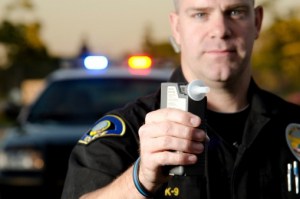Blood Alcohol Content

In Tennessee and all other U.S. jurisdictions, it is illegal to drive while under the influence of drugs or alcohol. The penalty for Driving Under the Influence (DUI) includes having your driver’s license suspended or revoked. To show that you were under the influence of drugs or alcohol, authorities usually try to measure your blood alcohol content (BAC). To determine your BAC, they may administer a blood alcohol, breath, or urine test.
In order to administer a blood alcohol test, authorities have to take a sample of your blood via syringe or some other method. Similarly, in order to administer a breath test to determine your BAC, authorities use a Breathalyzer device. A Breathalyzer consists of a mouthpiece, a mechanism to take breath samples, a pair of vials with the chemicals necessary to analyze breath, and a mechanism to monitor and measure the change in color typical of breath analysis. Thus, after you breathe into the mouthpiece, your breath sample fizzes into one vial, and your alcohol level is measured by the color change.
In criminal cases, without a warrant or the driver’s consent, blood alcohol tests are not a lawful method to determine one’s BAC; however, breath tests are a lawful method without a warrant. In fact, it is illegal for law enforcement agents to use an individual’s BAC as the basis of a search for a criminal charge. Nevertheless, it is legal for agents to use an individual’s BAC as the basis of a search for a mere civil sanction, such as suspension of a driver’s license. The reason for an individual’s BAC as a basis of a search is illegal for a criminal charge is that a blood alcohol test is invasive: The blood sample must be taken via syringe, and your personal privacy is invaded by the use of a syringe.
Some people may say that a blood alcohol test is not invasive and is an acceptable method to determine one’s BAC. Some states like Tennessee have “implied-consent” statutes. Implied-content statutes state that if a law enforcement agent stops and arrests a driver and has probable cause that said driver was driving while under the influence, then that driver legally has agreed to submit to a chemical test or tests to determine said driver’s BAC. However, a recent U.S. Supreme Court case, Birchfield v. North Dakota, ruled that blood alcohol tests are indeed invasive.
Merged with two similar cases, Bernard v. Minnesota and Beylund v. Levi, Birchfield v. North Dakota concerned the Fourth Amendment of the United States Constitution. The question was whether the Fourth Amendment, which provides protections against unreasonable searches and seizures, allows for breath tests and blood alcohol tests to be administered to suspected impaired drivers without warrants. The high court reversed the lower court’s ruling and ruled that the Fourth Amendment allows officers to administer breath tests without warrants. However, the high court also ruled that the Fourth Amendment requires officers to have warrants before they administer blood alcohol tests and use the blood alcohol test results as the basis for arrests.
If you were stopped by police and charged with DUI, know this: You have rights and legal remedies. If you have questions about state and federal DUI laws and related statutes, talk to a lawyer. For more information and to have your questions answered, contact Nashville Criminal Defense Attorney Perry A. Craft.
Related DUI Articles

Perry A. Craft has dedicated his life to helping people in need. He has tried, settled, or resolved numerous civil and criminal cases in State and Federal courts, and has represented teachers and administrators before school boards, administrative judges, and the state Board of Education. Learn more about Attorney Craft.
